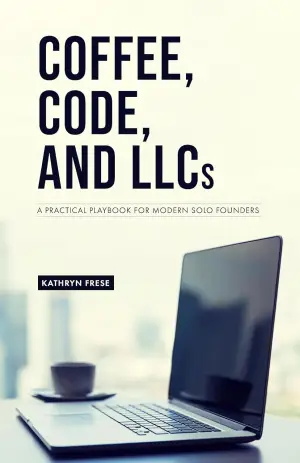Embracing the Shadows: A Reflective Dive into Carcoma
I had almost forgotten the thrill of delving into a book that felt incisive and haunting in equal measure. When I picked up Carcoma by María José Ferrada, I was immediately enveloped by a world that eloquently blended mystery, social critique, and the relentless tension of familial legacies. It’s been a while since I wrote a review—thank you, university life—but this novel pulled me back into the fold of literary reflection with its gripping prose and profound themes.
From the eerie opening line, “Cuando crucé el umbral, la casa se abalanzó sobre mí,” I was hooked. Ferrada’s ability to craft an atmosphere thick with tension captures the essence of the genre while inviting deeper conversations about the societal issues lurking beneath the surface. At first glance, Carcoma might seem like your typical haunted house tale, but to label it merely a horror story would be to overlook the intricate tapestry woven from themes of gender violence, class disparity, and internalized rage. It’s a multifaceted narrative that challenges us to reconsider our definitions of fear and trauma.
The house itself becomes a character as vivid as any of its inhabitants, steeped in both history and malice. It embodies the burdens of family lineage, acting as a vessel for resentment and suffering passed down through generations. This notion resonated deeply with me—how family dynamics shape our identities and experiences. The quote, “En esta casa no se hereda dinero ni anillos de oro ni sábanas bordadas con las iniciales, aquí lo que nos dejan los muertos son las camas y el resentimiento,” beautifully captures this haunting truth. The house, with all its imperfections, is not merely a setting but an epitome of a fractured family, reflecting societal norms that often confine women to cycles of victimization.
Ferrada’s writing is both poetic and incisive, enhancing the themes with a careful balance of realism and magical realism. The prose feels almost conversational at times, drawing you in before you realize you are lost in its depths. I appreciated how the narrative shifted between generations—the grandmother and granddaughter—as it explored the weight of inherited trauma. This duality opened up conversations about the roles women play not only in their families but in a society that often writes them into corners. The essence of vengeance weaves through the narrative, haunting those left behind and pushing them toward a reckoning that feels both personal and universal.
As I read, I couldn’t help but reflect on the importance of memory—a theme Ferrada skillfully intertwines with the ghostly remnants of the past. The tensions of the Spanish Civil War, framed within the context of the characters’ lives, added an undeniable layer to the narrative. It’s a reminder that history is never truly past; it shapes who we are and how we exist in the present.
In closing, Carcoma is not an easy reading experience, but it is a necessary one. It’s a novel that demands your attention, that urges you to confront darkness while offering glimpses of resilience through its characters. I believe readers who appreciate a blend of literary depth with the spine-chilling aspects of horror will find this book incredibly rewarding. It’s a poignant exploration of the female experience, punctuated by echoes of social relevance that linger long after the last page is turned.
I might not have written a review in a while, but Carcoma has reminded me how powerful stories can be. I found myself reflecting on the complexities of family and society, challenges that echo across generations. This book is not just a haunting tale; it’s an invitation to engage with our histories and confront the shadows that define us. If you’re up for a read that leaves you pondering deeply, Carcoma is a journey you won’t want to miss.






